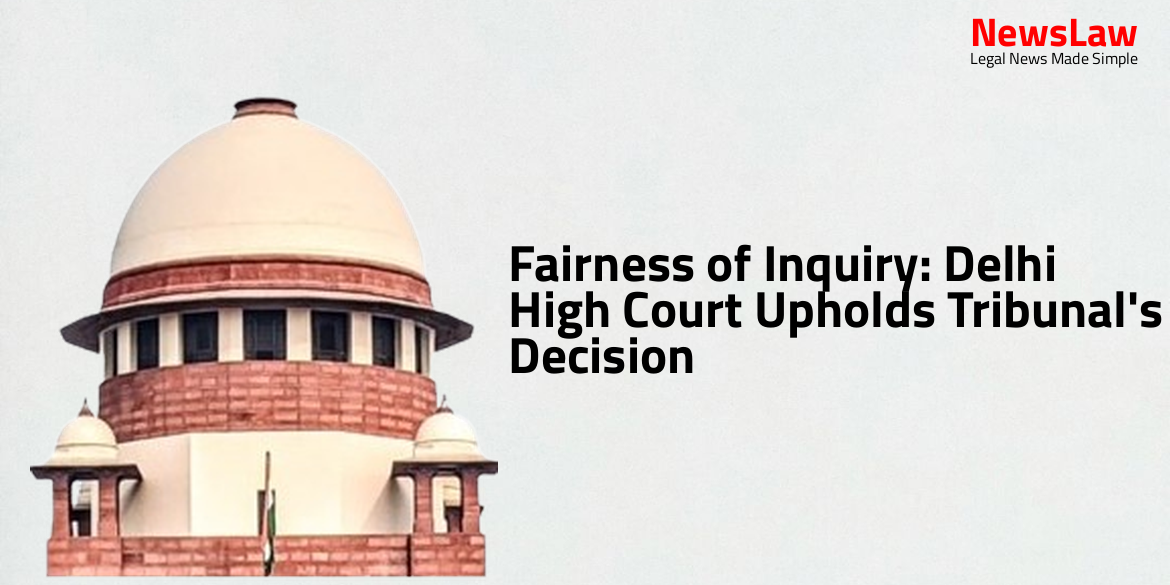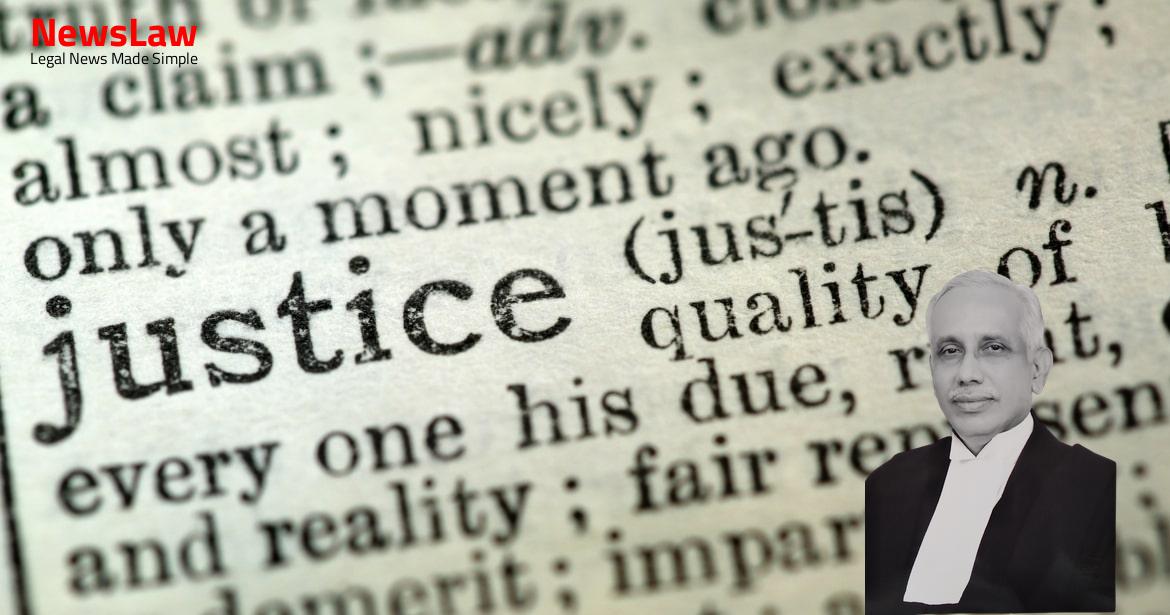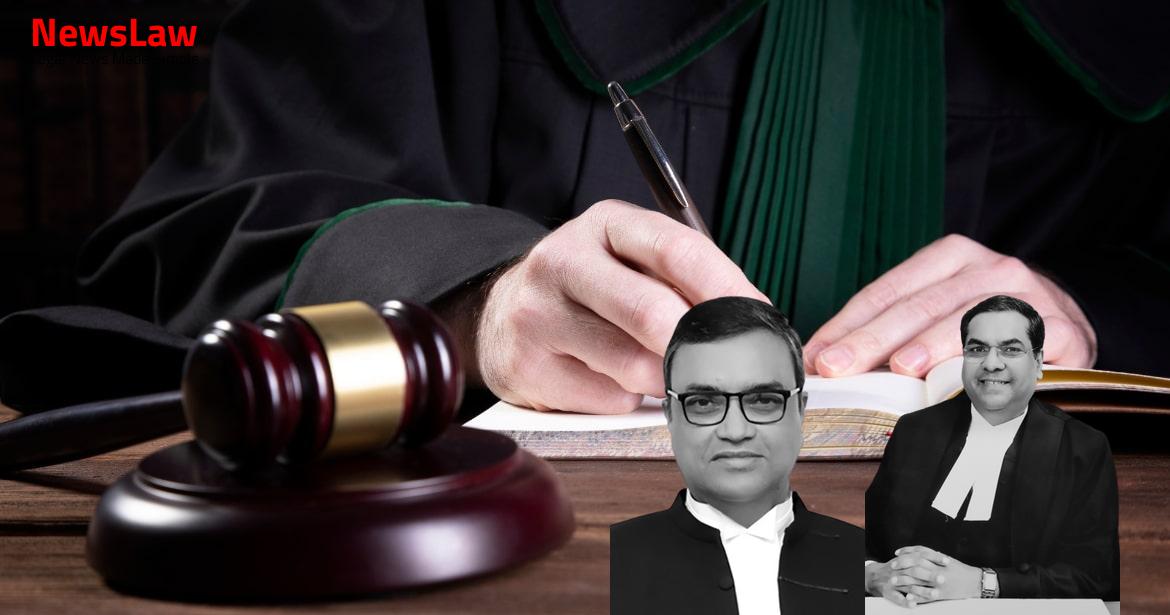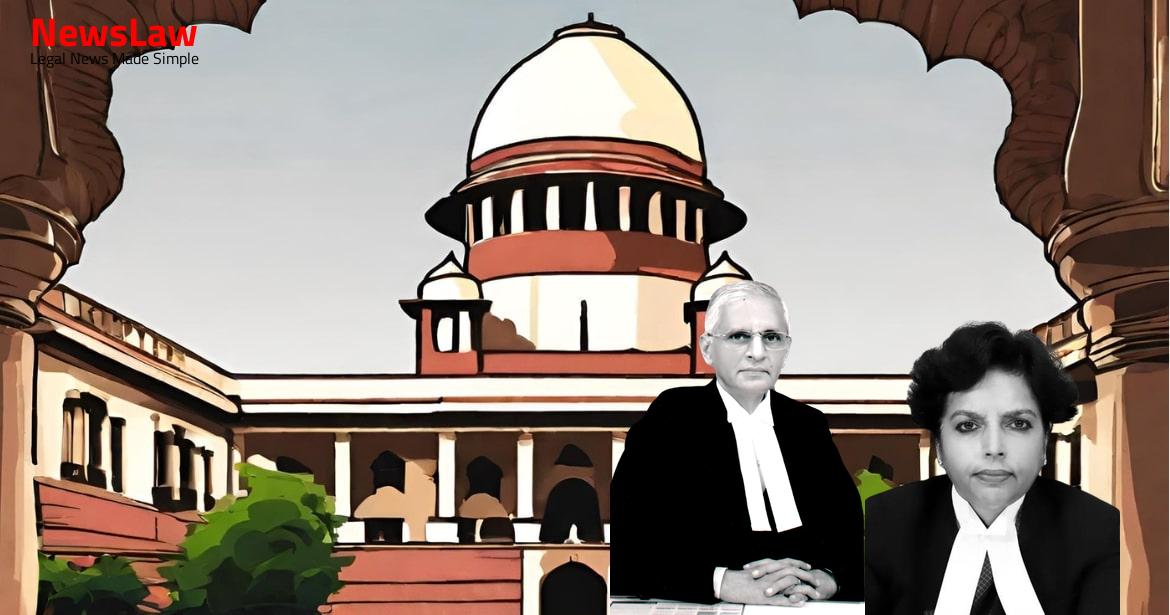In a recent legal case before the Delhi High Court, the issue of conducting a fair inquiry in accordance with the principles of natural justice was deliberated upon. The case involved the Delhi Transport Corporation workman and the management. Stay tuned to learn more about the court’s ruling on this crucial matter. #DelhiHighCourt #LegalCase #NaturalJustice
Facts
- The respondent workman joined as conductor with the Delhi Transport Corporation (DTC) on 30 January 1984.
- A chargesheet was issued to the respondent on 24 April 1992 alleging that he collected fare from passengers without issuing tickets.
- The respondent filed a reply to the chargesheet.
- The Enquiry Officer conducted an investigation and decided to reinstate the respondent without back wages.
- The petitioner has filed a petition seeking to quash the awards dated 2 September 2009 and 3 May 2010 passed by the Tribunal.
- The learned counsel for the petitioner requested that the petition be allowed and the reliefs sought be granted.
Issue
- Whether the management conducted a fair and proper enquiry in accordance with the principles of natural justice?
- The issue adjudicated in the impugned award dated 3 May, 2010 was whether the respondent’s service is illegal and/or unjustified and the relief entitled to.
- The adjudication in September 2009 focused on whether the petitioner’s enquiry was vitiated and violated principles of natural justice.
- The relevant extract from the award dated 2 September, 2009 was quoted.
Arguments
- The learned Trial Court held that the inquiry proceedings were vitiated and conducted in violation of the principles of natural justice.
- The checking staff did not verify the cash collected by the respondent, raising doubts about the allegations of collecting more money than the actual fare.
- The petitioner’s counsel argued that the awards were based on surmises and conjectures, lacking legality.
- The Tribunal’s decision to consider the enquiry as violating natural justice was contested, as the enquiry officer found the workman guilty after reviewing all documents.
- The respondent was accused of grave misconduct for charging passengers without issuing tickets, justifying the dismissal.
- The absence of the respondent’s past record with the chargesheet was deemed a minor technical issue, not affecting the validity of the chargesheet.
- The petitioner argued that the respondent’s history of similar misconduct justified the dismissal and was not a case of benefit of doubt, which the Trial Court had considered.
- It was contended that habitual offenses of not issuing tickets despite charging fare led to the rightful dismissal of the respondent.
- The respondent is accused of being a habitual offender with a history of misconduct.
- The petitioner argues that the respondent failed to issue tickets to passengers despite taking money.
- The petitioner alleges that the tribunal’s awards are flawed and show errors on the face of them.
- The respondent argues that the tribunal’s decision was based on the information available and should not be interfered with.
- The respondent claims that the enquiry was flawed as relevant documents were not provided and there were discrepancies in passenger statements.
Analysis
- The Enquiry Officer failed to explain to the workman that he was entitled to a defense assistant, violating principles of natural justice.
- The workman was denied access to the log book and relevant documents during the inquiry, further compromising the fairness of the proceedings.
- Management did not provide the past record along with the charge sheet, which is against principles of natural justice.
- The statement of passengers lacked authenticity and did not match with the oral testimony of MW-2 Rajbir Singh, raising doubts about the evidence presented by the management.
- The workman’s rebuttal evidence seemed more probable than the management’s case, indicating inconsistencies in the allegations.
- The Enquiry Officer did not specify whether the workman was allowed to inspect the evidence, which is a violation of natural justice.
- Non-supply of key documents and inadequate communication with the workman regarding his rights to defense assistance contributed to the vitiation of the inquiry proceedings.
- The learned Tribunal correctly observed discrepancies in the gathered evidence and held that the misconduct allegations were not sufficiently proven by the management.
- The workman’s right to be represented by a defense assistant was not honored, further undermining the fairness of the proceedings.
- The judgement refers to the case of State of Haryana v. Rattan Singh, (1977) 2 SCC 491.
- It states the decision of the Hon’ble Supreme Court in that case.
- The impugned awards dated 2 September, 2009 and 3 May, 2010 in I.D 204/08/96 are not illegal and do not require intervention by this Court.
- The petitioner failed to establish a case in his favor for the issuance of a writ of certiorari.
- The decision on backwages for the workman in the awards of 3 May, 2010 is held to be not entitled to any relief.
Decision
- The instant petition has been dismissed.
- Any pending applications related to the petition have also been dismissed.
- The decision is in accordance with the law.
Case Title: DELHI TRANSPORT CORPORATION Vs. RAM AVTAR SHARMA (2024:DHC:3949)
Case Number: W.P.(C)-6785/2011



